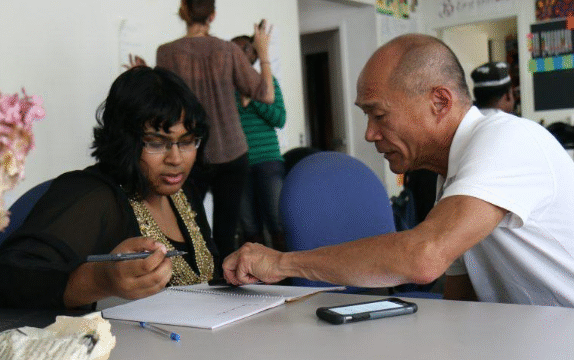The way we work has changed in remarkable ways
over the past decade. Remote jobs, once considered
rare, are now a common part of the employment
landscape. With more people choosing flexible work-from-home arrangements, learning certificates have become valuable tools for boosting employability and standing out in competitive industries. These certificates provide focused knowledge and practical skills that align with the needs of employers who rely on virtual teams. If you are interested in growing your career from the comfort of your home, exploring certificates tailored to remote-friendly roles can be a smart investment.
Remote jobs typically emphasize skills that can be demonstrated through projects, communication, and technology rather than requiring constant physical presence. Because of this, certificates that highlight digital expertise, self-management, and technical proficiency can make you an attractive candidate. The best part is that many certificate programs are accessible online, which means you can study at your own pace while preparing for the very type of work environment you want to join.
One of the most popular areas for remote jobs is digital marketing. Businesses of all sizes rely on online channels to connect with customers, which creates a constant demand for professionals who understand search engine optimization, social media strategy, content marketing, and paid advertising. Certificates in digital marketing not only teach these skills but also allow learners to build portfolios with real-world examples. Employers value the ability to show measurable outcomes, such as increasing website traffic or engagement, and certificate programs often include practical projects to help learners gain that experience.
Another field that thrives in remote environments is project management. Companies that manage distributed teams need leaders who can keep tasks on track, communicate effectively across time zones, and ensure that projects meet deadlines. Earning a project management certificate demonstrates that you can use professional frameworks, scheduling tools, and collaboration platforms effectively. For someone looking to secure a remote role that involves coordinating multiple people, such a credential signals reliability and organizational strength.
Technology-related certificates also open doors to remote opportunities. Careers in software development, data analysis, and information technology support are among the most common remote positions available. Certificates in coding, cloud computing, or cybersecurity not only teach technical skills but also show employers that you are serious about staying updated in fast-changing industries. Even if you are not pursuing a full career in technology, having a certificate that confirms your ability to troubleshoot, analyze data, or use specialized software can enhance your value to employers who need team members capable of working independently.
Customer support and virtual assistance are also thriving areas for remote jobs. Many businesses outsource these roles to people who can provide reliable help without being in a traditional office. Certificates in customer service, business communication, or virtual administration can prepare you to manage calendars, respond to inquiries, and keep operations running smoothly. Since these roles often serve as the backbone of a company’s day-to-day interactions, having formal training sets you apart from others who may rely only on prior experience.
Creative professionals can also benefit from learning certificates designed for remote work. Fields such as graphic design, copywriting, and video production all lend themselves to flexible working arrangements. Certificates in design software, creative writing, or digital storytelling can show clients and employers that you not only have artistic talent but also the discipline to complete projects to professional standards. In competitive creative industries, proof of training can make the difference when a company decides whom to hire for freelance or long-term work.
The world of education has also embraced remote opportunities, particularly in online teaching and tutoring. Certificates in teaching English as a foreign language, instructional design, or e-learning development prepare individuals to educate students around the world from their own home. These certificates often combine pedagogy with technology training, ensuring that you can deliver engaging lessons through digital platforms. As more people seek flexible ways to learn, skilled online educators will remain in demand.
Health and wellness have found a space in the remote economy as well. Many professionals now provide coaching, nutrition guidance, or fitness training virtually. Certificates in health coaching, wellness consulting, or yoga instruction allow individuals to establish online practices where they connect with clients through video calls or digital content. While some roles may require additional licensing, certificates serve as a strong starting point for building credibility in these fields.
When deciding which certificate to pursue, it is important to align your choice with both your interests and the type of remote work you want. If you enjoy technology, a certificate in web development or data analysis could be rewarding. If you prefer working with people, customer support or virtual administration might be a better fit. Certificates are not just about adding a line to your résumé; they are about gaining confidence and competence in areas that employers and clients value.
A significant advantage of certificate programs is their flexibility. Many can be completed in a few months, making them faster and often more affordable than traditional degree programs. They are also designed to be practical, which means you spend less time on broad academic subjects and more time learning exactly what you need for the job. This efficiency makes certificates especially appealing to career changers or those who want to upskill quickly.
In today’s job market, employers often look for proof of skills rather than just educational background. Certificates provide that proof in a way that is accessible and adaptable. By choosing certificates geared toward industries that embrace remote work, you equip yourself with tools to thrive in a future where flexibility and independence matter. Whether your goal is to join a company as a remote employee or to build a freelance business, the right learning certificate can help open doors.
Remote work is no longer a temporary trend but a sustainable option for millions of people. With thoughtful planning and the right certifications, you can position yourself for success in this expanding world of opportunities. The key is to choose a program that matches your career aspirations and to commit to applying what you learn in meaningful ways. By doing so, you not only enhance your career prospects but also gain the freedom to shape your work life in ways that suit you best.
Learning certificates are more than credentials; they are stepping stones to careers that provide both stability and flexibility. In a world where professional growth and personal freedom increasingly go hand in hand, investing in the right certificate may be one of the most rewarding decisions you make for your future.






